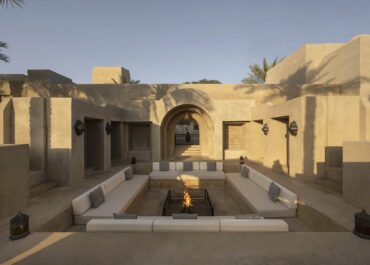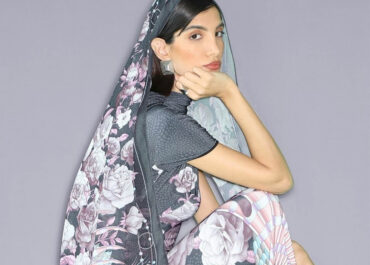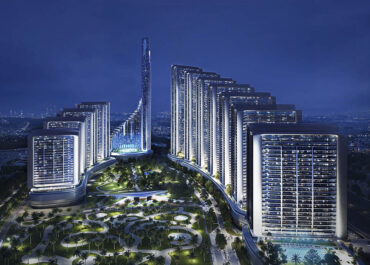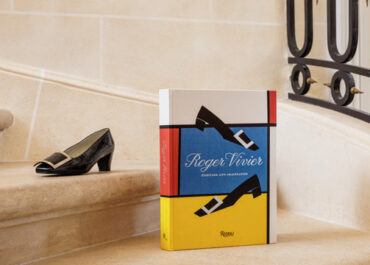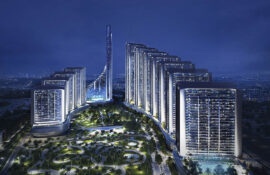We sat down with Ráhel Orbán, Creative Director of BDPST Group and Managing Director of BDPST Koncept to learn why Budapest is a must-visit city in 2024 and beyond.

Ráhel Orbán
The Hungarian capital of Budapest is a melting pot of culture. The largest city on the Danube River and a population of 1.7 million, this untouched city has so much to offer. With a rich culture and growing industries in finance, media, art, fashion and commerce, this bustling city is in the spotlight. The central area of Budapest along the Danube River is classified as a UNESCO World Heritage Site and has several impressive monuments of classical architecture, including the Hungarian Parliament and the Buda Castle. With a focus on wellness, the city also has around 80 geothermal springs, the largest thermal water cave system. Budapest attracts around 12 million international tourists per year, making it a highly popular destination in Europe, but it is still very much unknown to many Middle Eastern travellers.
Enter the BDPST Group. In 2015, the BDPST Group was founded with the vision of developing upscale tourism and real estate in Hungary, aiming to position the country as a premier destination for high-end and cultural travel. The group’s mission encompasses a holistic approach that integrates the development and management of upscale hospitality properties with the preservation and celebration of Hungarian cultural heritage.

Embracing the cultural heritage of Budapest, the group today has a portfolio of properties that respect the traditions of the country but offer a modern luxury touch. On the company’s The Group’s founder István Tiborcz, explains his wish to “build a bridge between the heritage of the past and the values of a sustainable future.”
This is highlighted by the Group’s most significant projects. The launch of the Dorothea Hotel, a unique 5-star establishment in Budapest, the renovation of the Gellért Hotel which is now undergoing a rebranding in partnership with Mandarin Oriental, and perhaps the most exciting project, the development of the BDPST Group including the BOTANIQ Castle of Tura. The BOTANIQ Collection is the brand’s upscale hotel chain which began focusing on integrating Hungary’s rich cultural heritage into a modern hospitality experience.

This began with the BOTANIQ Castle of Tura. The refurbished castle today celebrates the past and present with a luxury five-star resort that invites guests to discover the beauty of the country in an elegant setting. The BOTANIQ Collection umbrella also features additional properties including the Verno House, an urban jungle in the centre of Budapest, or Melea The Health Concept where you can experience longevity service and also the brand includes other restaurants, private clubs, luxury services.
Today the Group is looking to attract international visitors to the city. This untouched location is ready for GCC visitors and there is so much to discover. We met with Ráhel Orbán, Creative Director of BDPST Group and Managing Director of BDPST Koncept to find out more.

Why would visitors from the GCC want to visit Hungary?
The summer in the GCC is so hot and Europe is quite a destination for GCC guests, both for Arab locals and expats, I feel they are looking for a nest in Europe, a base where they can settle down and travel from. It’s safe, and they don’t need to worry. In the last ten years, I have heard negative comments about Hungary; that we are not open enough or not diverse enough, our language is super difficult – there is no other language similar to Hungarian, and it is one of the most difficult in the world – so people won’t want to come here and learn the language, but it’s now changing and we have a very international workforce. People say that Hungary is not diverse or multicultural, but if you visit and see how it is you will see it is in fact, very multicultural. It is a very respectful and peaceful place and for travellers, it’s very appealing.

How would you position Hungary and Budapest for GCC travellers?
As a destination, we offer great food and beverage, an area in which we are getting better and better. In general, Hungarian restaurants are good. We have local food, but we also have international food – Italian restaurants, international restaurants – maybe we are missing a little the brands, but we have Nobu, and we have started to gain more international names, and this is just the beginning.

On another note, Hungary is very safe. Our tax system is great, so it is a good place for business. We already have great hotels, but there are many more coming – Mandarin Oriental, Ennismore, Sofitel, EHG – we have all the big brands, we also have four and three-star hotels, which is also great and maximises the offering for travellers. We have the opera, we have the Palace of Art, we have museums – so if you want to enjoy a day with culture you can and in the meantime, you also have alternative culture, we have a lot of small clubs and theatres. Our architecture is beautiful. Budapest is diverse. The Danube River is there, and it is beautiful too, a river can really change a place. The airport is also changing and it will have a new operator so I hope that the air access will change. Public transport is great, and people love to use it here, and it’s safe. The only thing that is really missing is luxury shopping and we are pushing for this.

When it comes to restaurants, why do you think international brands have waited until now?
The destination is not ready yet, so we need to build it up. If you look at Marbella for example, the first time I visited, the only international restaurant was Nobu, but year after year, as the destination was developed, they changed the brands and now they have many restaurants. We are working on a strategy that is building up. F&B here is already good, it could be better. One of my favourite restaurants is an Arabic restaurant here so we have a diverse offering. The destination needs to be ready for the international brands, and that’s what we are working on. When we have enough visitors to have a Zuma for example, we will look into that. I am very proud of the BOTANIQ Collection and our other projects because we have a clear strategy. For example, we have recently opened an Aleli restaurant in collaboration with the Dani Garcia Group, and this summer, we are excited to announce the opening of another restaurant, BIBO.

Tell us more about the BOTANIQ Collection – you have a diverse portfolio, what sets it apart from other chains?
It actually came to life by accident, we didn’t intend to create the BOTANIQ Collection brand. We created the BOTANIQ Castle of Tura which was our first project, and the speciality of this castle is that we not only reconstructed the original building but also the properties and area around it. We invested money to restore the whole park area. We did a lot of research into the plants that were there, and how they were planted, it was a lot of work, and therefore the name of the chain is BOTANIQ Collection because there is a link with nature, and it is an easy elegance. Hungary often gets bundled together with Germany and Austria, but the reality is we are completely different, the country looks different, and our tastes are also very different. Originally, Hungarians come from the East, from Mongolia, and that’s why Asians for example, always feel very at home here. We wanted to bring back the elegance that we traditionally had in Hungary. We want people to feel it through our properties.

If you were to ask me what my favourite project is it would be the castle because I really love the vibe there. What I love about this property is that it’s elegant, but you feel that you are in the countryside. It’s elegant, but you don’t need to be formal, and I love this feeling of comfort and easy elegance.
We want our properties to all be different because they have different spirits and vibes, so every time we have a property we look into the roots and story of the building and what happened there.
Tura was everything because it was built by a very rich family, and then, during communism, it was taken away from them and given to the state. It was a hospital, then it was a school, and so it has this rich history. One of our waiters in the restaurant used to be a student at the school so he is always telling our guests stories and I think this is very important. There is so much history surrounding this property.

As for Verno House, this hotel feels like an urban jungle. One of the reasons we created an urban jungle is that the couple who created the park next door were a very famous Hungarian couple of the Széchenyi family. The wife planted the first plant here with the message of “let’s flourish”, and that’s why we have the word Verno which comes from Latin and meaning to bring to life. She created this park because, at the time, people didn’t mix with people from other classes. They wanted to create a place where people from different walks of life could meet and come together. So at this hotel, we are trying to do something similar: it’s an urban jungle where local people and international people meet, they come for many different reasons – business, luxury, tourism – and they meet in this urban jungle.

How would you describe your city in one word?
Spice of Europe. It’s not one word but it is what it means to me, yes, we are European, but with a twist. That’s actually the motto of Budapest.

What are we celebrating tonight?
We are celebrating the launch of the BOTANIQ collection. When we started creating all these destinations, they were all independent, so we decided to create an umbrella brand to make things clearer and easier. We have also created a loyalty programme which means everyone who is part of this family can get something back. It is very important for us to create a community here and I really hope that everyone is going to find something in our collection.
We have many exciting new projects coming, so stay tuned!






